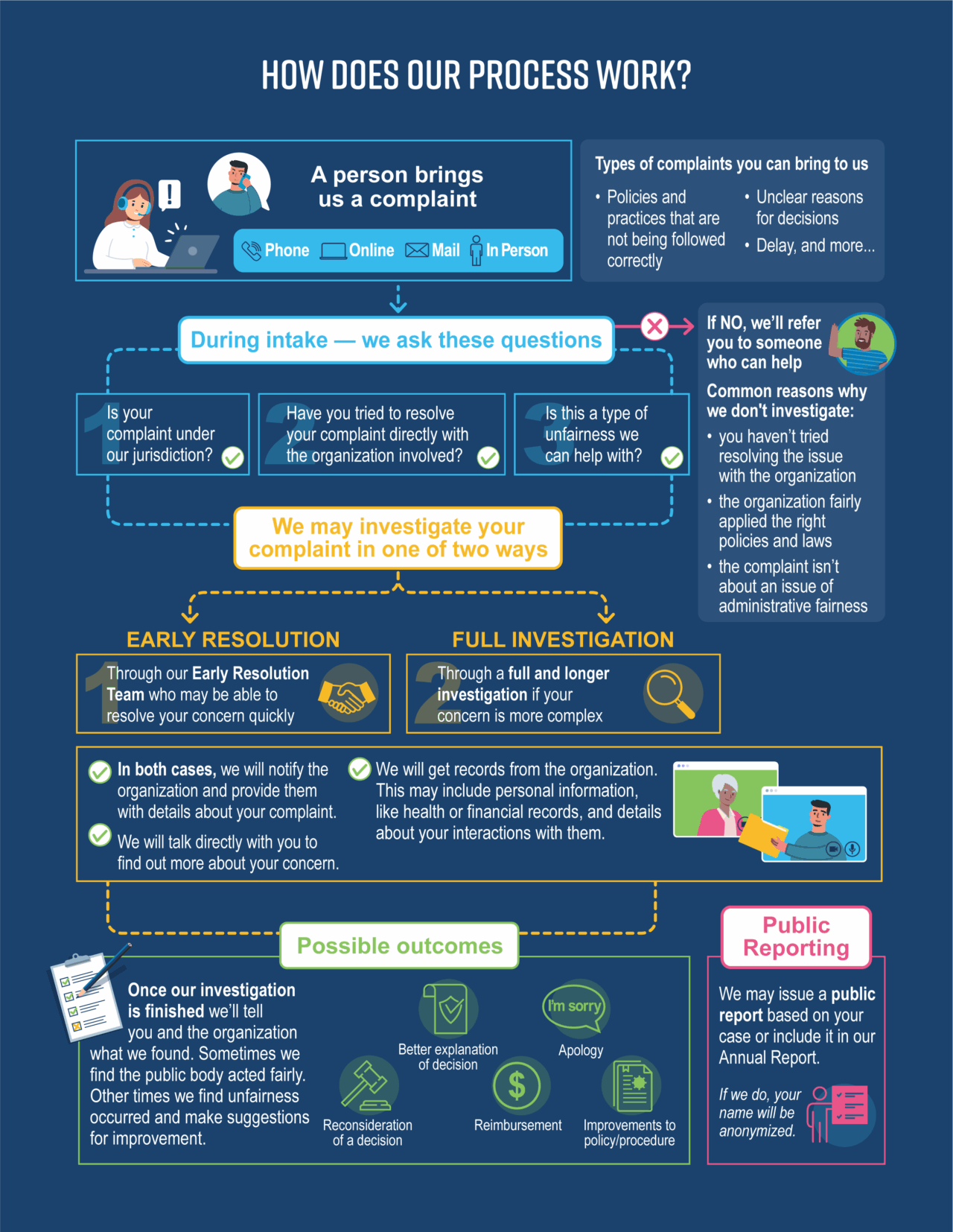Home / Public Complaints / Our Process
Our complaint handling process
When people come to us, they bring a wide-range of concerns about how they have been treated as well as many questions about how they can resolve their concerns. Our job, with each complaint or question, is to determine how best to help.
Here’s what you can expect once we receive your complaint:

Here’s what you can expect once we receive your complaint:

Intake assessment
When you contact us with a complaint, it will be reviewed by our Intake and Early Resolution Team. They will assess your complaint to see:
- If it falls under our jurisdiction – whether it is about an organization we can investigate, and whether it raises a specific concern about the administration of government programs and services. For more information about our jurisdiction, click here.
- If you’ve given the organization an opportunity to respond to and resolve your concerns themselves. For more information about how you can raise your concerns, click here.
If we can’t take your complaint right now, we may be able to direct you to other organizations or processes that can help.
If we can take your complaint without referring you elsewhere, it will be assigned for further assessment. Depending on the nature of your complaint, your file will be assigned either to our Early Resolution process, or to an Investigations team to assess the complaint further and decide whether we’ll investigate.

Early resolution process
Sometimes issues around communication, delay or accessibility can get in the way of an organization working with you directly to address your complaint. Our early resolution process is designed to help resolve those issues and get the process back on track towards a timely resolution.
This often means that the matter can be resolved without needing a full, formal investigation – but it doesn’t mean we can’t investigate later if the process doesn’t resolve things for you.

Investigative assessment
When your file is assigned to an Investigative team for further assessment, you’ll be contacted by our staff and may be asked for additional information or documents. Our staff will review your concerns in detail to determine whether an investigation is necessary. Depending the complexity and urgency of your complaint, and the volume of complaints we are currently dealing with, the assessment period may be brief or may require some patience.
If we decide that investigation is not necessary, we’ll advise you of that decision and the reasons for it.
Investigation
When a matter proceeds to investigation, we notify the organization of the complaint and collect evidence to determine whether the complaint is substantiated. Our focus in an investigation is on hearing all parties impartially and looking at objective evidence to find out what happened and whether standards of administrative fairness have been met.
If it appears that there has been any administrative unfairness, we work towards achieving a fair and reasonable resolution of the complaint. Most resolutions are achieved with the agreement of the government organization, but in rare circumstances formal findings and recommendations may be required. At the end of the investigation, the parties involved are advised in writing of the result.

One complaint can often benefit many
